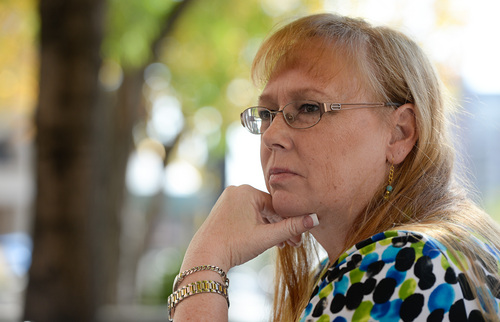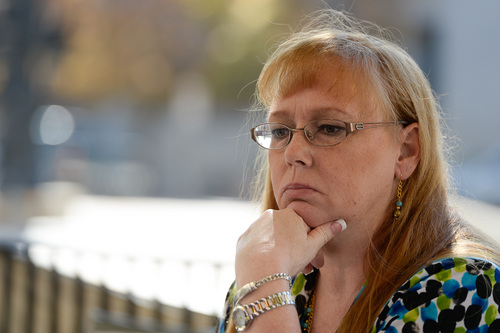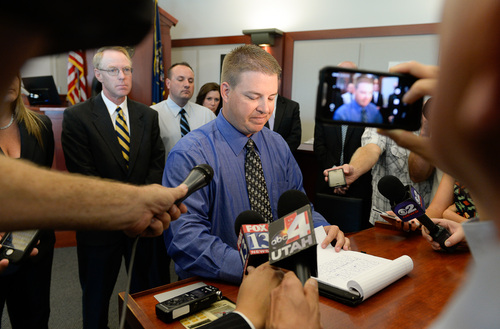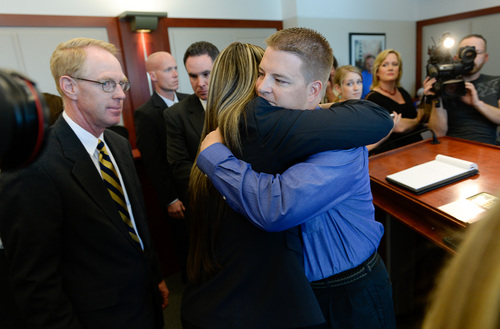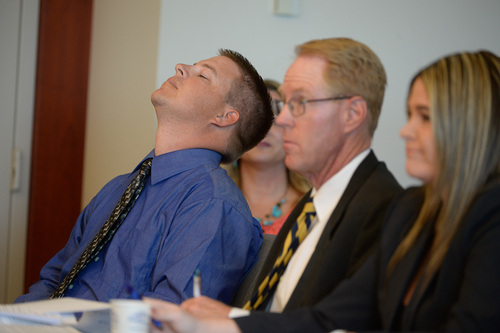This is an archived article that was published on sltrib.com in 2014, and information in the article may be outdated. It is provided only for personal research purposes and may not be reprinted.
Melissa Kennedy says her battle is not over.
The mother of Danielle Willard, shot to death by former West Valley City officer Shaun Cowley, kept a steely countenance one day after a judge dismissed Cowley's manslaughter charge.
"This just shows to me that things need to change, and if I don't keep fighting the fight, then who will?" Kennedy said Friday during an interview at a Salt Lake City cafe.
Third District Judge L.A. Dever threw out the case against Cowley on Thursday, saying Salt Lake County prosecutors presented no evidence in Cowley's preliminary hearing this week that his "conduct was not legally justifiable" when he shot Willard on Nov. 2, 2012, in a parking stall during an undercover drug investigation.
Cowley said he shot Willard because he believed she was trying to run him over as she backed out of the parking space.
"I don't feel like [Dever] actually listened to all the evidence," Kennedy said. "If [he had], he would see that the prosecutors ... actually showed that there's no way that what Cowley said could have really happened."
Dever pointed to testimony by a Salt Lake City police detective who testified that Cowley could have thought Willard was trying to kill him" and that "deadly force is an appropriate response," Dever wrote.
But the detective, Chris Kotrodimos, also said that Cowley and his partner, Detective Kevin Salmon, "took a low-key traffic stop and escalated it unnecessarily."
Dever wrote, "the testimony of ... Detective Kotrodimos, that he would have done things differently, is not evidence that the conduct was not legally justifiable."
But Dever's ruling does not address testimony by other investigators who said Cowley's explanation — that he fired a round before being struck by Willard's car and falling to the ground — was inconsistent with evidence, including bullet trajectories.
To advance a case to trial, a judge must find, after considering the evidence in a light favoring the prosecution, that there was "probable cause" that a defendant committed a crime. The relatively low burden of proof — far lower than "beyond a reasonable doubt," as required for a conviction — means that few criminal cases are dismissed at this stage.
Kennedy said she met with Salt Lake County District Attorney Sim Gill on Friday morning and asked him "to do everything possible within the legal realm to do whatever he needs to do," but she stopped short of saying she was asking for an appeal of Dever's decision.
"He said he would look into [his options]," Kennedy said of Gill. "They were going to mull this over, let it sink in, think about it, and talk and see what needed to happen next."
Gill said on Friday he had made no decision as to whether he would appeal Dever's ruling.
Only the state attorney general's office can appeal a judge's dismissal of a felony case after a preliminary hearing, Gill said. Should he seek an appeal, Gill would have to ask the attorney general's appellate division to take the case. If they choose to, they would take the case to the Utah Court of Appeals.
Attorneys with the attorney general's office could not immediately estimate how often the division appeals judges' refusals to bind defendants over for trial.


